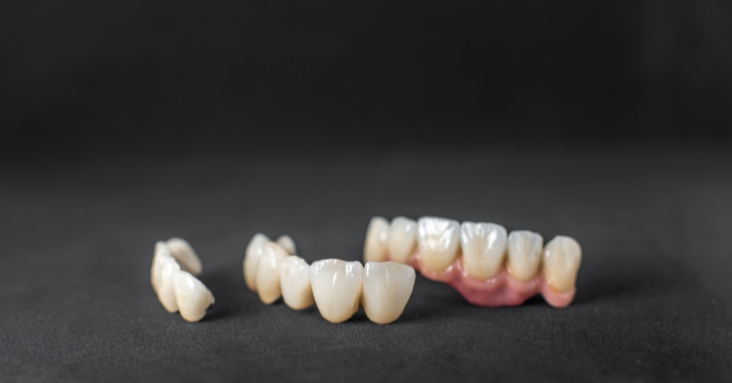Emergency & New Patients Welcome!

Losing a tooth or two in adulthood can be no less than a nightmare.
Whether you were in an accident or you simply slipped and fell, lost teeth can cause a dent in your self-confidence and make regular activities such as eating or chewing difficult.
But worry not! Modern dentistry has come a long way and it also offers you an ideal solution for this situation – dental crowns.
Do you want to know more about this solution? Stick to this blog:
What Are Dental Crowns?
Dental crowns are protective teeth caps. If you have damaged or weakened teeth, crowns cover them to protect them from worsening. They reimpose both the teeth’s structure and their appearance. So you can restore discolored or damaged teeth with dental crowns.
The best aspect of crowns is they can be made of durable materials like porcelain, ceramic, composite, gold, steel, zirconium, or metal. The truth is you can find a fix in crowns for every sort of dental damage.
How Do Dental Crowns Work?
A broken or damaged tooth might fail to function at its finest. A dental crown restores its size, shape, and strength. It also protects the tooth from further damage, improves its functionality, and prevents discomfort during daily activities like eating or speaking.
What are the Benefits of Dental Crowns?
Are you intrigued to explore why nearly 15 million Americans have dental crowns? Scroll down for the lowdown:
- Restores oral function: No need to worry about your broken or damaged tooth. Crowns can revive teeth’s performance and make them function just fine.
- Improves teeth appearance: Are you unhappy with your teeth’s appearance? Crowns can fix it. You can choose crowns that match the color of your teeth, and they don’t look out of place or artificial.
- Durable: Crowns can last up to 15 years following a strict oral care habit.
Why Are Crowns Preferred for Broken Teeth?
A broken tooth can leave nerves exposed. It can cause intense tooth pain and increase the risk of tooth infection. A dental crown protects you from all these dental concerns. It covers the exposed area and prevents it from further deterioration.
How Are Crowns Placed?
The approach of crown placement is uncomplicated. Take a look below to know more:
- Consultation: Your dentist will assess the extent of teeth damage and recommend the type of crowns (temporary or permanent) and their materials.
- Preparation: The dental professional will take into account your teeth’ shapes to make the crowns look as natural as possible.
- Placement: Once the crown is ready, the dentist will bond the crown to the tooth for a perfect fit.
Dental crowns are a practical solution for broken or damaged teeth. Since the introduction of crowns in the early 20th century (1903), they have successfully revived teeth that were beyond repair. If you’re struggling with similar dental concerns, get help from our dental team to restore damaged teeth with dental crowns.
